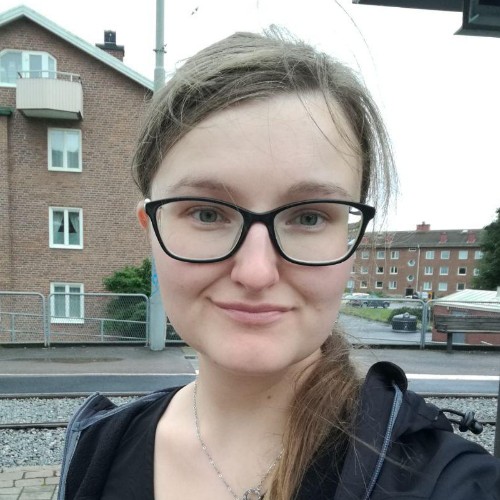Boel Nelson receives Marie Sklodowska-Curie postdoc fellowship
Congratulations to postdoc Boel Nelson, from the Logic and Semantics research group, who has been awarded the highly prestigious Marie Skłodowska-Curie postdoctoral fellowship. This, generous two-year funding, is an investment in Nelson’s research aimed at designing solutions to protect metadata in online communication, with a focus on solutions suitable for instant messaging. Nelson will return to the department to start her Marie Skłodowska-Curie postdoctoral fellowship in August 2023.

Every minute, 69 million instant messages are sent. Many of these messages are protected through encryption, for example in messaging services such as WhatsApp, Facebook Messenger, and iMessage. More specifically, encryption makes it possible to message a friend without having to worry about someone else reading the messages. But what most people don’t realize, is that someone with access to the network still learns about the chat taking place. For example, an Internet Service Provider that observes messages going back and forth between its customers can deduce who talks to whom, even when the messages are encrypted.
One may argue that learning who talks to whom is harmless. But information rarely exists in a vacuum. For example, a journalist may be interviewing a whistleblower about a sensitive event at the whistleblower’s workplace; when the journalist later publishes their story, knowing who talks to whom, the employer can single out a person as having talked to the journalist, despite the journalist’s best intentions to protect their source. This information leakage is possible - because of what’s referred to as metadata.
Metadata, according to Merriam-Webster’s dictionary, is “data about other data”. Who knows who, how often they chat, and at what time different people like to talk, are all examples of metadata about online communication. In other words, chatting online consists of information that’s not explicitly stated, in addition to the messages sent. Identifying this subtle metadata requires one to read between the lines—the difficulty lies in protecting the information that isn’t explicitly there.
While the problem of metadata privacy is well-known, and the research field has attracted the attention of researchers since the 1980s, how to effectively protect metadata remains an open research problem. So far, designing a solution that actually works, both in theory and practice, has proven difficult—existing tools are either flawed, i.e. they provide insufficient privacy, or, they lack a user base due to a complex mix of both technical and social barriers to adoption.
One of these technical barriers is that tools to protect metadata can’t be designed as a one-size-fits-all solution. For example, when using instant messaging on a phone, a fair expectation is that the battery lasts a full day without charging, so a viable solution needs to have a low battery cost, or people won’t use it. More generally, different settings impose different requirements, and solutions need to be designed with this awareness in mind. However, much of the research tends to ignore the setting, which creates a disconnect between theory and practice. The consequence is that there, currently, exists no tools suitable to protect metadata in reality—which is a big problem since it leaves all online communication vulnerable to metadata leakage.
The significance of metadata privacy is recognized by the European Union, who have decided to generously fund Nelson’s proposed Marie Skłodowska-Curie project Provable Privacy for Metadata, ProPriM. A key component of the project will be to use formal methods to be able to precisely define what to protect, to avoid the unintentional information leakage that metadata creates. The other aspect of the ProPriM project will focus on a specific use case, namely instant messaging, which will allow the project to address challenges all the way from a theoretical concept to a practical implementation. By combining theory and practice, the ProPriM project aims to design new, effective solutions to metadata privacy.
About the Marie Skłodowska-Curie fellowship
The Marie Skłodowska-Curie fellowships are among Europe’s most competitive and prestigious awards, aimed at supporting the best and most promising scientists. The fellowship aims to foster the career development and further training of excellent researchers. Read more about the Marie Sklodowska-Curie postdoc Fellowship on the European Union’s website. Next deadline is september 14, 2022.